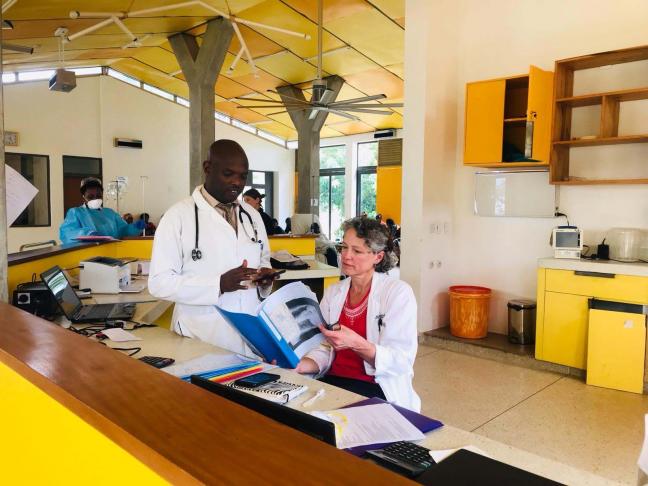Hematology-Oncology Fellowship training in Rwanda, Africa
To meet the rising demand for cancer care in low- and middle-income countries (LMIC's), an accredited Global Health track in Hematology-Oncology Fellowship programs is needed. To determine feasibility, the Geisel School of Medicine at Dartmouth's Hematology-Oncology Fellowship Program piloted a bi-annual, one-month elective in Rwanda supervised by Geisel School of Medicine faculty. The Butaro Cancer Center of Excellence in Butaro Rwanda was the host cancer center. Objectives included the exchange of knowledge in a resource-stratified setting and engagement in scholarly collaborations.
The 2-year pilot program was 100% enrolled by fellows from 3 US Hematology-Oncology programs and one rising first-year Hematology-Oncology fellow. Seven educational, research and quality improvement projects and three organizational changes were implemented. Three grant proposals for research collaborations are in process. Fifty percent of participating fellows plan to pursue careers in Global Health. The Hematology-Oncology fellows gained perspective on cancer care and capacity-building in an LMIC, and confidence in their ability to teach. Butaro Cancer Center of Excellence staff gained knowledge and mentorship, ideas for quality improvement, and increased expertise with treatment protocols. Rwandan colleagues valued the solidarity generated by a long-term partnership. Faculty time in Rwanda was supported by a combination of Continuing Medical Education, Fellowship and vacation time.
We have concluded that a global oncology fellowship elective is feasible and has a qualitative impact on care delivery and collaboration in LMICs influencing fellows' career choices and professional growth of colleagues at partner sites. Long-term partnerships complement the task-sharing approach to cancer care. Financial sustainability requires formal institutional support for faculty participation. A Global Health track in Hematology-Oncology that includes international applicants from LMICs will encourage multi-disciplinary collaboration and expand our capacity for quality global cancer care.
Related publication
Butonzi J, Forbes V, Kigonya C, Lansigan F, Davis T, Figueroa K, Ruhangaza D, Shabani K, Nininahazwe P, Nkunsi E, Habimana O, Haley J, Buswell L, Costa C, Hill A, Sharma P, Hanna C, Fehr A, DeBoer B, Park P, Sebahungu F, Mpanumusingo E, Shyirambere C, Mpunga T, Shulman L, Chamberlin M, Global Oncology Fellowship Elective Impacts Collaborations in Cancer Care and Knowledge Exchange, Rwanda Medical Journal (2019).
